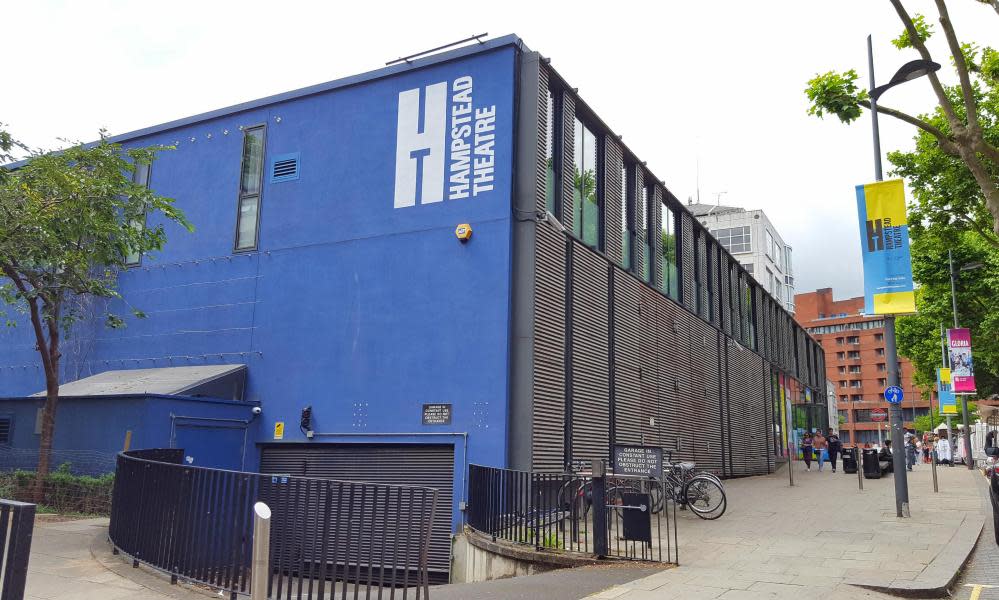Hampstead theatre director quits after Arts Council 100% funding cut

Hampstead theatre, which has nurtured emerging playwrights including Harold Pinter, Mike Leigh and Hanif Kureishi over its 60-year history, is set to “change direction” after the Arts Council cut its funding to zero last month.
Roxana Silbert has quit as the north London theatre’s artistic director because of the financial constraints it is facing after Arts Council England’s decision not to renew its £766,455 annual grant.
Hampstead theatre was a number of London arts institutions that had their funding cut by 100% as the Arts Council sought to fulfil a government instruction to channel more public money outside the capital. They include the Donmar Warehouse, the Barbican Centre and the Gate theatre. English National Opera also had its funding withdrawn but was offered grants to fund a move away from London to the north of England.
Hampstead theatre said that in the light of the cut, it will “need to change direction and can no longer continue solely as a new writing theatre”. Silbert had decided to step down “as a consequence”. The theatre added: “It is tragic that a leading writers’ theatre, having launched so many careers over the years and created work that has been enjoyed across the UK, should be treated in so summary a manner.”
The theatre started life in 1959 as the Hampstead theatre club, operating in a north London hall before moving in 1962 to a small studio in Swiss Cottage, where it remained for 40 years. It developed and produced the work of new and emerging writers such as Michael Frayn, Brian Friel, Abi Morgan and Debbie Tucker Green as well as Pinter, Leigh and Kureishi.
Producing work by new writers carries more risk for theatres than established plays that are certain to draw audiences. As well its main stage, Hampstead theatre has a more intimate studio space, which its website says, “is totally committed to new writing. Its programme is an opportunity for Hampstead to continue to innovate and build on its exceptional foundations as a place where new talent blossoms.”
It declined to give more detail about its change of direction, only saying that Greg Ripley-Duggan, the theatre’s executive producer, would be responsible for the “transition to a new model”.
Related: ‘It’s undoubtedly going to have a big impact’: inside three Arts Council funding cases
Silbert said her decision to quit had not been easy. “Due to financial constraints which are well documented, and after thorough reflection, it feels appropriate for me to resign … Hampstead will have to recalibrate and change in order to go forward and I wish it every success.”
Irene Dorner, chair of Hampstead theatre, said Silbert had been “an inspirational leader for Hampstead and has directed some truly wonderful productions on both our stages. As part of our new strategy, we trust that she will often be able to return to Hampstead as a visiting director.”
The theatre had been “devastated” by the cut to its grant, she added.

 Yahoo News
Yahoo News 
